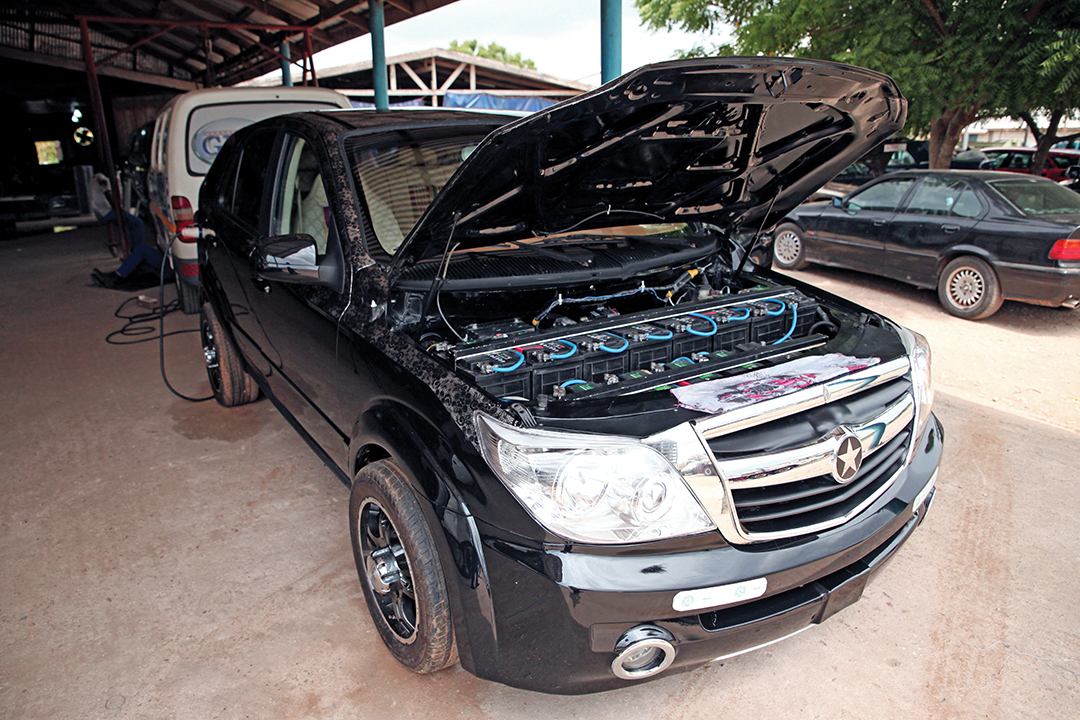‘Made in Ghana’ Vehicles Go on Sale
Story and photo by AGENCE FRANCE-PRESSE
A Ghanaian inventor and church leader who started out trying to make voice-controlled television sets is telling the world’s auto giants to move over. Kwadwo Safo Kantanka — nicknamed “Apostle” because he also runs a network of churches — has realized his dream of developing and marketing cars “Made in Ghana.”
“It’s been in the pipeline since 1971,” said Kwado Safo Jr., one of the inventor’s sons. “It started with the old man, so it’s been a long time coming.”
Kantanka’s electric sport utility vehicles and pickup trucks have got Ghanaians talking on social media, thanks in part to an advertising campaign using local movie and music stars. The sticker prices of the vehicles run from $18,000 to $35,000, out of the range for most people in Ghana. But a cheaper version is expected to go on sale in 2016.
The locally made vehicles are entering a tough market, going up against established brands in a country that sees about 12,000 new and 100,000 secondhand cars imported every year. But the inventor’s son, who is chief executive of the Kantanka Group, is confident the demand is there and the company can hold its own in the competition.
Ghanaian President John Dramani Mahama has been pushing his compatriots to buy locally to boost a sputtering economy hit by inflation, a depreciating currency and high public sector debt.
In 2014, he showed off a pair of Ghana-made shoes during his annual State of the Nation address and criticized the lack of appreciation of locally made goods and the overreliance on imports.
He noted that $1.5 billion was spent in foreign currency on items such as rice, sugar, cooking oil, tomatoes and fish — all money that “could have gone into the pockets of Ghanaian entrepreneurs,” he said.
For Kantanka, some key components such as glass, tires and brake calipers are imported. But local sourcing is a key component of Kantanka’s vehicles, whose radiator grilles feature Ghana’s five-pointed star emblem.
Wood from Ghanaian forests is used to make dashboards, and the cream-colored leather seats in some vehicles are made in the country’s second-biggest commercial city, Kumasi.
Kantanka’s son is adamant about the uniqueness of the cars, which all have been approved for safety by Ghana’s Drivers Vehicle Licensing Authority. The Made in Ghana label means that “if you have any problems with the vehicle, you wouldn’t have to import from India or China or America,” he said. “All the parts are right here, and we have a 24-hour service.”
In early 2015, Ghana’s police service received one of the pickup trucks, potentially paving the way for other government agencies to place orders.


Comments are closed.